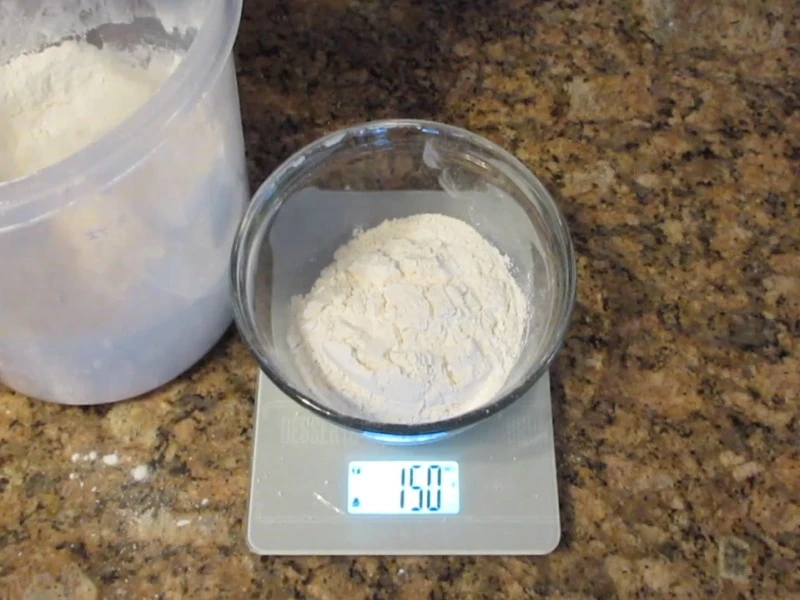If you are trying a new recipe to cook or bake something but don’t have a kitchen scale, you might wonder how much 150 grams is to cups.
150 grams of water is 0.634 cups, while flour is approximately 1.06 or 1 1/4 US cups. The difference in the value is due to the varying density of the substance or the ingredient. To figure this out better, use the conversion formula for weight to measure all values for various densities accurately.
In this comprehensive guide, we’ll discuss the value of 150 grams to cups for water, flour, sugar, and other ingredients to help you accurately measure the items.
How Much Is 150g In Cups?
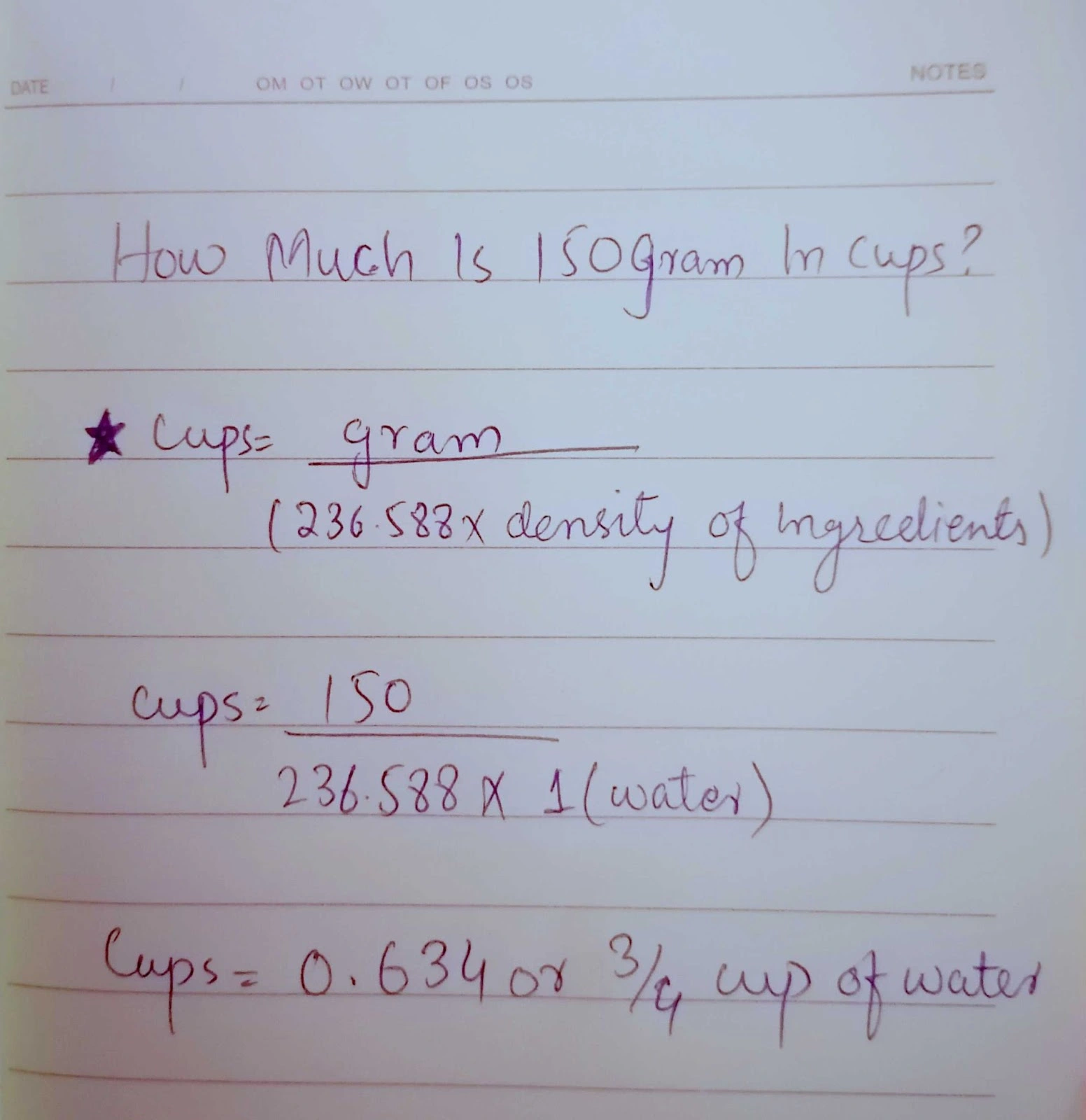
As a general rule of thumb, 150 grams is approximately 0.634 cups, but this value might differ when using the formula due to the density of the substance or ingredient you are measuring. The general equation is:
Weight (grams) = cups x cup size x density of the ingredient
Since we have to find the value for the cup, the formula will convert to Cups = grams/ (236.588 x density of the ingredient)
Here 236.588 is the standard US cup size in milliliters. Now, if you want to convert 150 grams of water, the equation would be:
Cups = 150 /236.588 x 1(water density)
Cups = 0.634 or ¾ cup of water
Flour
If you calculate the value of 150 grams of all-purpose flour using the above formula, the result is 1.06 or 1 1/4 US cups.
But this value also depends on how firmly you’ve packed the flour in the cup.
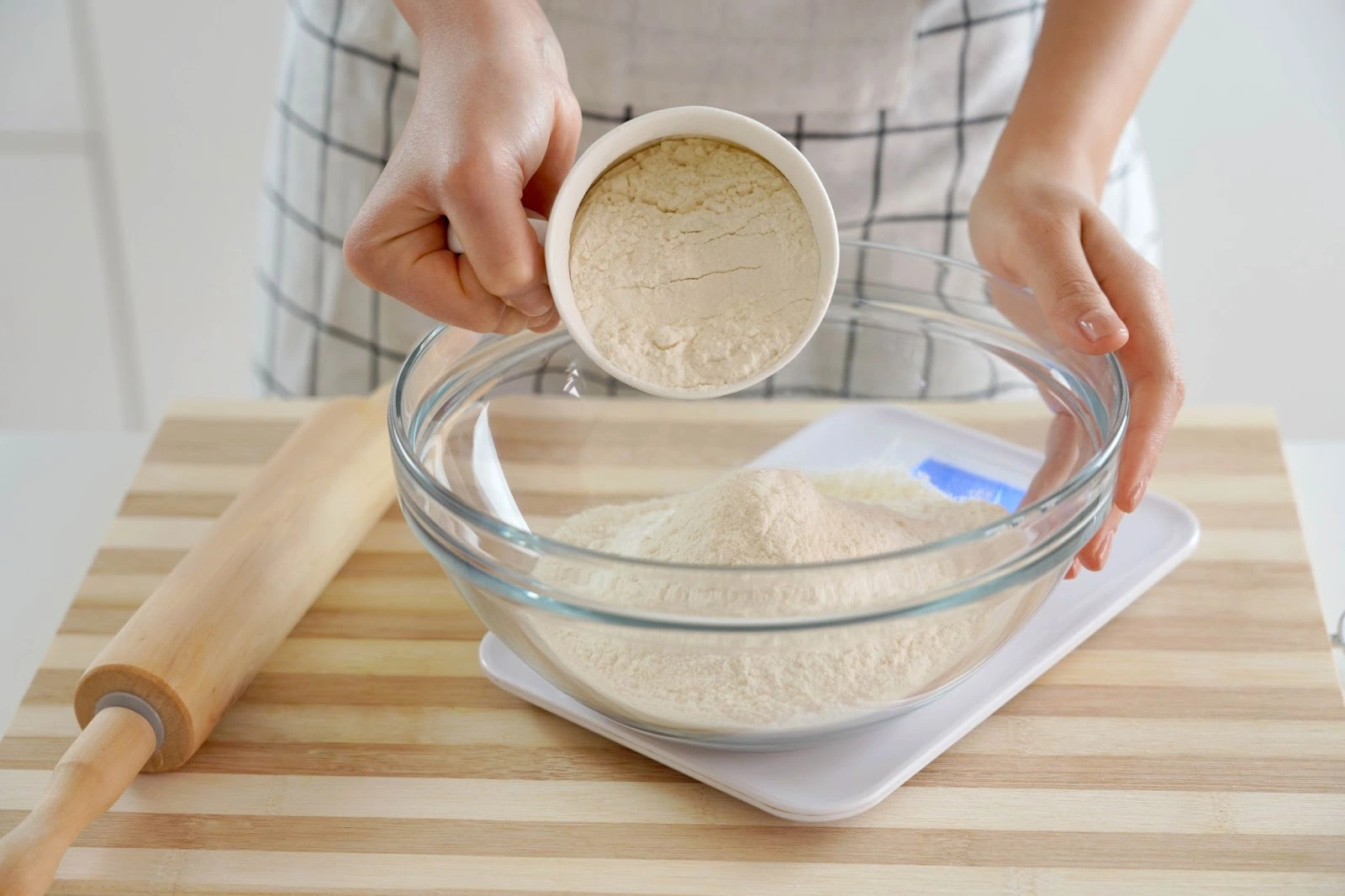
Below is the conversion table for 150 grams of other varieties of flour:
| Flour | 150 grams to cups value |
| Almond flour | 1.56 cups |
| Cake flour | 1.5 cups |
| 00 flour | 1.18 cups |
| Chestnut flour | 1.67 cups |
| Bread flour | 1.18 cups |
| Buckwheat flour | 1.25 cups |
| Cornflour | 1 cup |
| Pastry flour | 1.39 cups |
| Rye flour | 1.47 cups |
| Coconut flour | 1.34 cups |
| Gluten-free flour | 1.23 cups |
| Whole wheat flour | 1.16 cups |
| Semolina flour | 0.9 cups |
| Tapioca flour | 1.23 cups |
| Self-raising flour | 1.2 cups |
Nuts and Seeds
The formula for measuring 150 grams of nuts and seeds in cups is the same as for flour.
However, the density of nuts and seeds can differ depending on their type, size, moisture content, and shape. For instance, 150 grams of almonds equals 1.05 cups, but the same amount of chia seeds is only 0.92.
The 150 grams to cups values of other nuts and seeds are given below:
| Nuts and Seeds | 150 Grams to Cups value |
| Chopped Walnuts | 1.28 cups |
| Brazil nuts | 1.13 cups |
| Whole Hazel nuts | 1.09 cups |
| Hazel nuts meal | 1.3 cups |
| Cashew nuts | 1.05 cups |
| Shredded Coconut | 1.61 cups |
| Macadamia nuts | 1.12 cups |
| Whole Walnuts | 1.39 cups |
| Peanuts | 1.03 cups |
| Poppy seeds | 1.07 cups |
| Chopped Pecan | 1.38 cups |
| Whole Pecan | 1.52 cups |
| Pistachios | 1.22 cups |
| Flax seeds | 0.89 cups |
Liquids
Liquid density varies based on its type, properties, and composition. Therefore, 150 grams of buttermilk is 0.61, but whole milk is only 0.62 cups.
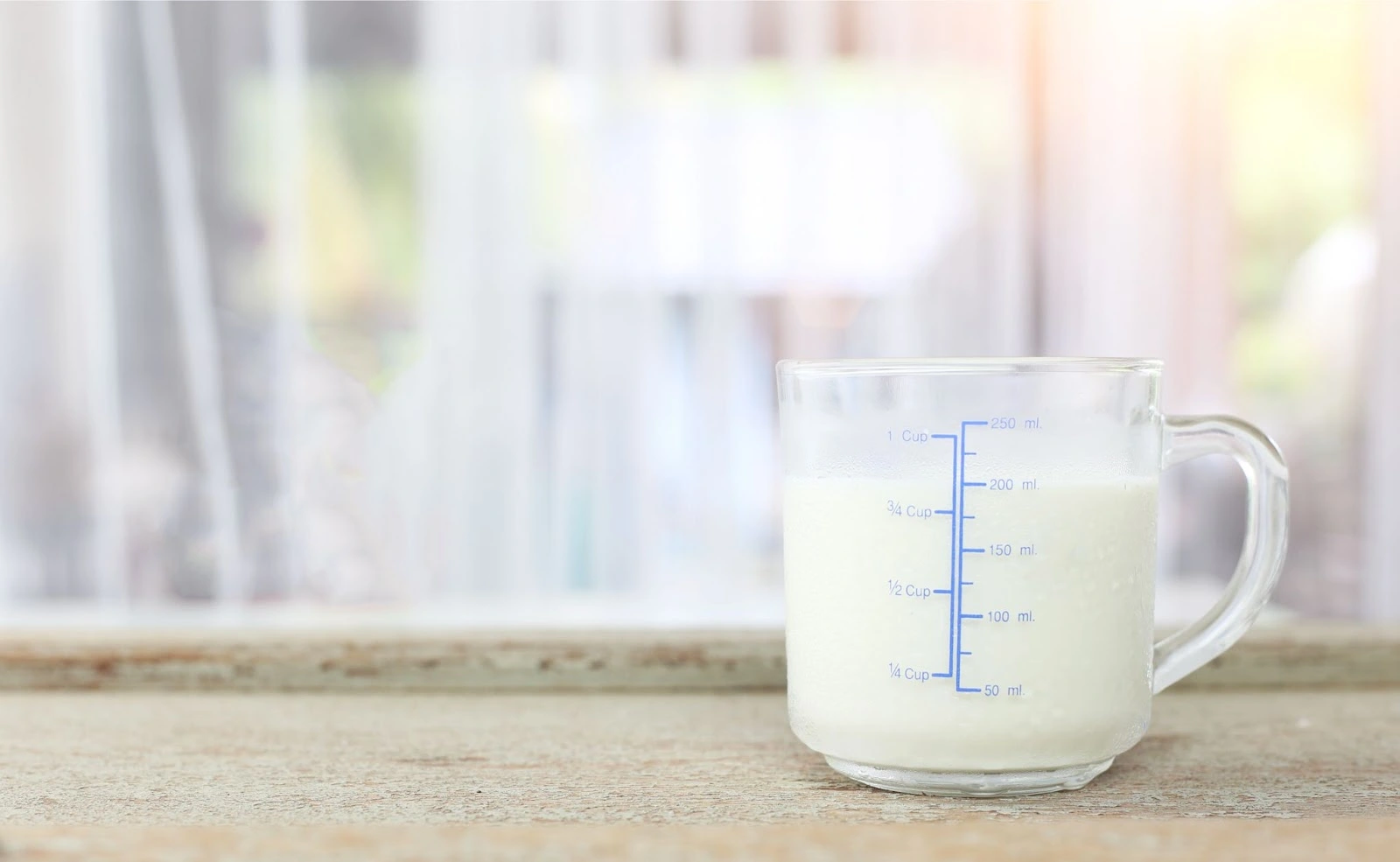
| Liquids | 150 grams to cups value |
| Goat milk | 0.61 cups |
| Condensed milk | 0.49 cups |
| Whipping cream | 0.63 cups |
| Heavy cream | 0.65 cups |
Some recipes might even require weighing a gallon of milk in pounds or kilograms.
Fats
Fats are lipids composed of three fatty acid units, glycerol and trihydroxy alcohol. They can be solid or liquid at room temperature, depending on unsaturation degrees and the number of carbon atoms.
Since the density of fats is based on their type and state, 150 grams of butter is 0.66, while that of virgin olive oil is 0.704 or ¾ cups.
We’ve listed down the value of other fats in the table below to help you accurately measure them using a cup and make the perfect dish:
| Fats | Grams to cups value |
| Coconut oil | 0.69 cups |
| Ghee | 0.68 cups |
| Avocado oil | 0.7 cups |
| Virgin Olive oil | 0.68 cups |
| Sesame oil | 0.69 cups |
| Peanut butter | 0.58 cups |
| Peanut oil | 0.68 cups |
| Vegetable oil | 0.67 cups |
| Vegetable shortening | 0.79 cups |
| Sunflower oil | 0.68 cups |
| Grapeseed oil | 0.7 cups |
| Macadamia oil | 0.7 cups |
Leaveners And Smalls
Leaveners cause the dough and batter to rise by producing gas bubbles. In contrast, small ingredients are used in fewer quantities in baking. They can be dry or wet ingredients, such as salt and vanilla extract.
Although Leaveners and smalls are mostly required in tablespoons or teaspoons, you might have to make a large batch of the dish for a party where you need to measure in cups or double ⅔ the ingredients.
So, 150 grams of salt is usually 0.55, while the vanilla extract is 0.72 cups. Let’s take a quick look at the conversion of other Leaveners and smalls:
| Leaveners and Small | 150 grams to cups value |
| Baking soda | 0.68 cups |
| Pink salt | 0.56 cups |
| Baking powder | 0.68 cups |
| Ground coffee | 1.17 cups |
| Powdered Gelatin | 1 cup |
| Cocoa powder | 1.27 cups |
| Instant Yeast | 0.99 cups |
| Fresh Yeast | 1 cup |
| Cream of tartar | 0.93 cups |
| Active dry yeast | 1.1 cups |
Sugar and Sweeteners
Sugar and sweeteners add sweetness to your food or drinks but have different properties and densities with varying 150 gram to cups values.
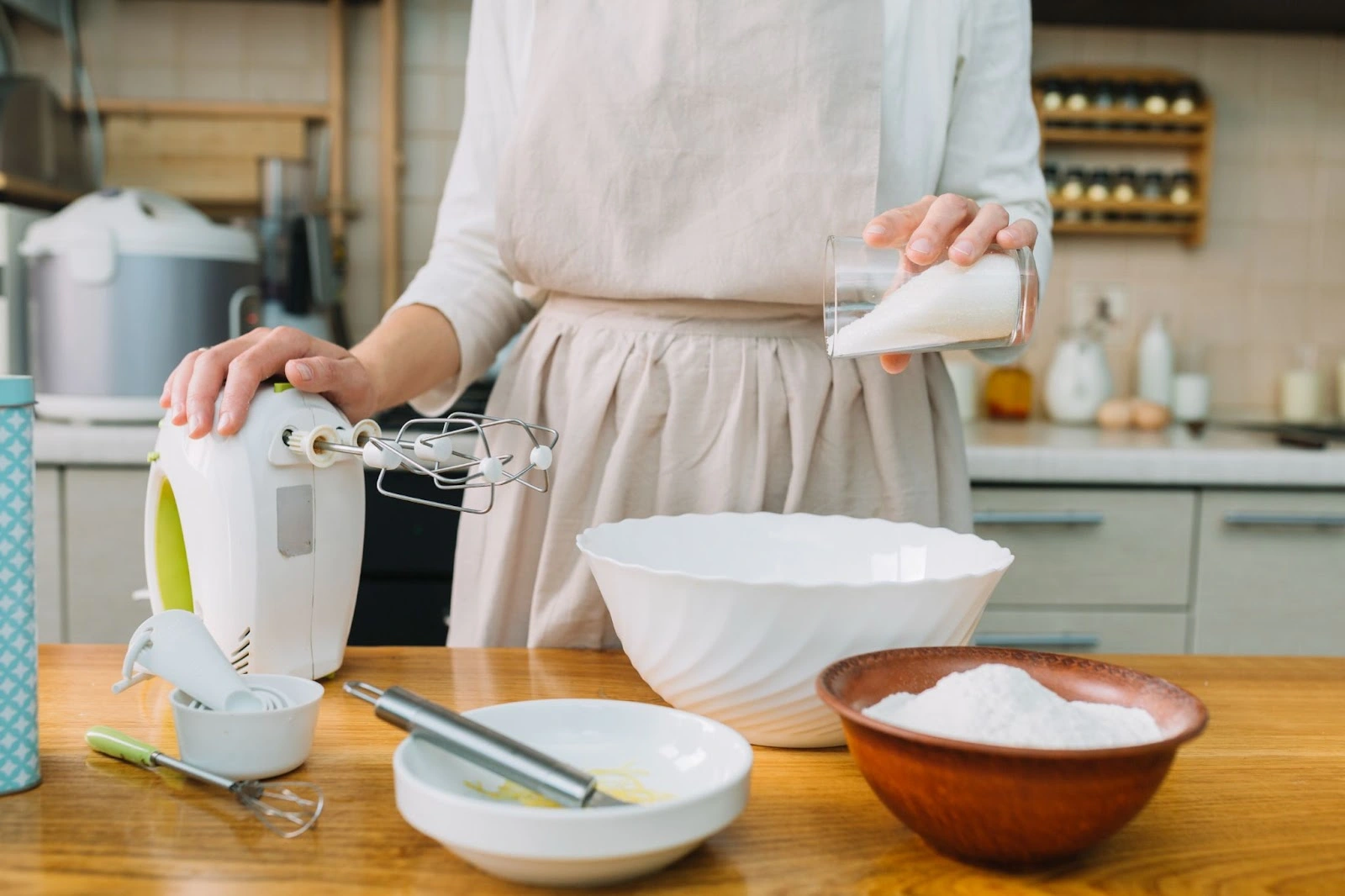
For instance, 150 grams of granulated white sugar equals 0.75, but honey is almost 0.44 cups. Here’s the table listing the conversion of other sugar and sweeteners:
| Sugar and Sweeteners | 150 grams to cups value |
| Powdered sugar | 1.2 cups |
| Icing sugar | 1.2 cups |
| Brown sugar | 0.75 cups |
| Caster sugar | 0.67 cups |
| Light corn syrup | 0.46 cups |
| Maple syrup | 0.47 cups |
| Treacle syrup | 0.46 cups |
| Golden syrup | 0.45 cups |
| Molasses | 0.43 cups |
Conclusion
This article discussed the value of 150 grams to cups for different cooking and baking ingredients that will help you give a complete overview of the conversion values.
Remember that if you want precise and accurate results in your cooking and baking, you need to convert the values based on the ingredient you are measuring using a conversion formula.

